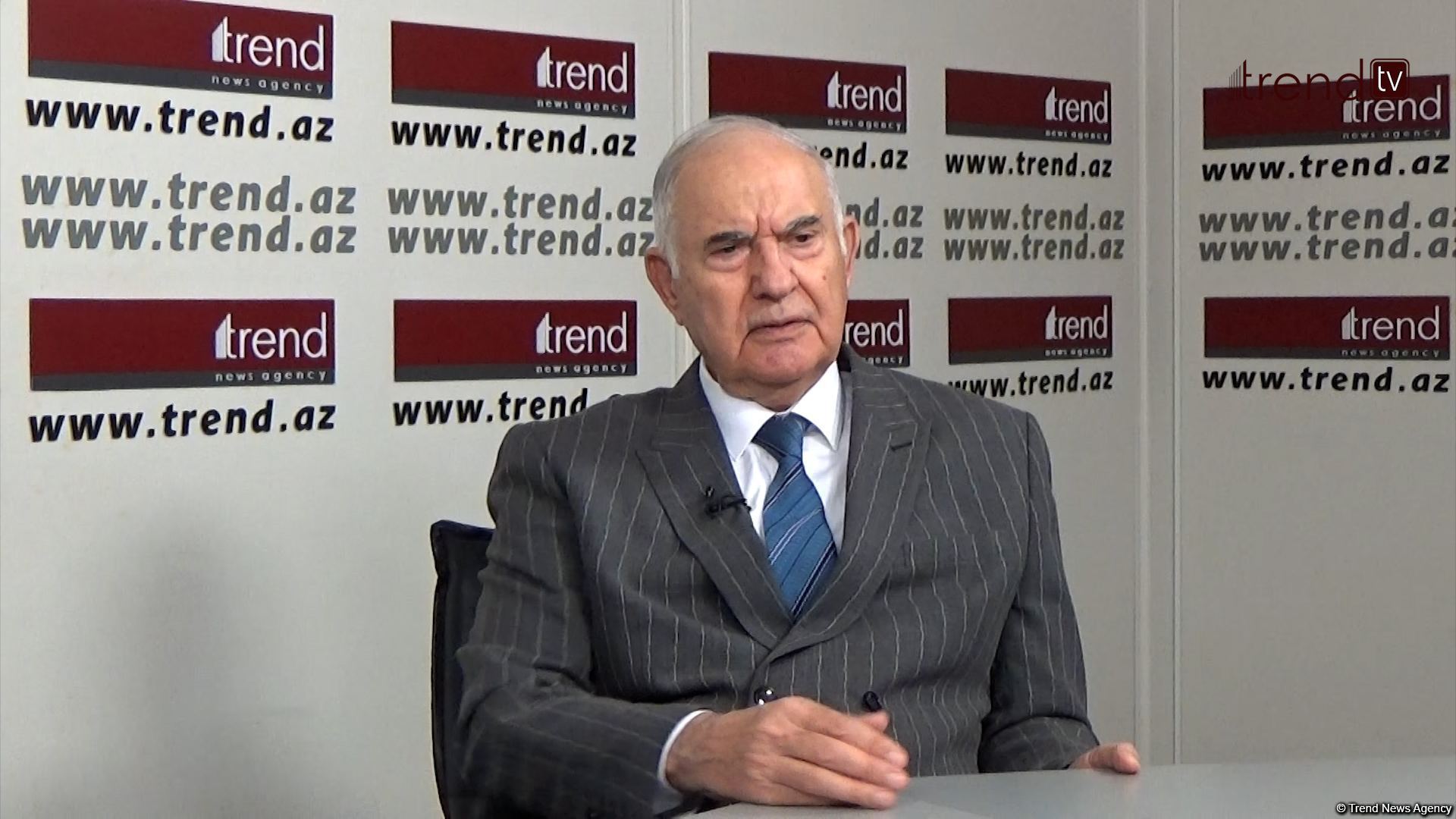BAKU, Azerbaijan, January 17. The current territory of Armenia has historically been the homeland of Azerbaijanis. This fact is confirmed not only by numerous historical documents but also by geographical maps of the Russian Empire from the 19th and 20th centuries. The toponyms on these maps have purely Azerbaijani origins.
Irrefutable evidence of the history of Western Azerbaijan dates back to official maps of the 19th century. The toponyms related to geographical regions on the maps have Azerbaijani origin. For instance, many Azerbaijani villages used to be in present-day Armenia. The names of these villages were systematically changed, and Armenians made attempts to create their own "spiritual trace".
President of Azerbaijan Ilham Aliyev mentioned this issue in an interview with local television channels. He emphasized that 300,000 Western Azerbaijanis should return to those regions: "However, the total number of those who have been displaced from that region and who are now living in various parts of Azerbaijan, along with their descendants, is several times greater than 300,000. Take a look at the maps from the 19th century, from the Russian Empire. All the toponyms there are of Azerbaijani origin, as well as the maps compiled by the Russian Empire in the early 20th century. The names of all the cities are of Azerbaijani origin. You will not see a lake named "Lake Sevan" there; it is written as Lake Goycha. When we say that this is our historical land, we are stating the truth. Even in the recent speech of the first fascist president of Armenia, recently published in the media, he admits that Azerbaijanis were the majority in three regions. Azerbaijanis constituted the majority in Zangezur. Yes. Not just a majority, but there were villages composed entirely of Azerbaijanis. In the 20th century, we faced deportation three times, and each time, these deportations led to serious consequences."
The deportation of Azerbaijanis from these territories occurred in several stages. The first such case occurred in 1918-1920. According to Armenian historian A. Lalayan, "Dashnaks, during their 30 months of rule (from May 1918 through November 1920), killed 60 percent of the Azerbaijanis living in Armenia." According to another Armenian source, of the 575,000 Azerbaijanis living in Armenia during 1918-1920, 565,000 were brutally killed or forcibly expelled from their homeland.
The second wave of deportations occurred between 1948 and 1953. A decree of the Soviet Council of Ministers on December 23, 1947, envisaged the "voluntary" resettlement of 100,000 Azerbaijanis from the Armenian SSR between 1948 and 1950. The phrase "voluntary basis" in the decree was used with a specific intent. In reality, these were true repressions. According to the decree, in 1948, it was planned to resettle 10,000 people; in 1949 - 40,000, and in 1950 - 50,000. As a result of this stage of deportation, between 1948 and 1953, approximately 150,000 Azerbaijanis were forced to leave the Armenian SSR.
The last mass deportation of Azerbaijanis occurred in 1988. From November 22-24, 1988, a new phase of ethnic cleansing began in Armenia. According to official data, 200,000, but in fact, 250,000 Azerbaijanis were forcibly deported from their homeland. During the deportation, according to official data, 216 people died, but in reality, 460 Azerbaijanis lost their lives. These are all historical facts, which are confirmed even by Armenian sources.
As for the return of deported Azerbaijanis to their homeland, it is one of the rights recognized by international law. Progressive conventions protecting civil and political rights can lay the foundation for this process.
As President Ilham Aliyev said in an interview, the majority of the villages where Azerbaijanis lived are now completely empty - no one lives there, and returning to those areas would not pose a significant problem, as there would be no need to relocate anyone: "All that is required is a guarantee of safety, recognition of their right to live there, and the creation of conditions for their activity. This is our demand, and I am hopeful that the day will come when Western Azerbaijanis will return to their native lands."
The head of state also said that it would be appropriate for Armenia's Prime Minister to meet with representatives of the Western Azerbaijan Community: "To my knowledge, they are even ready to travel to Yerevan. He should meet them, hear their concerns, and listen to them. These people were unjustly expelled from those lands. They have every right to return. If this does not happen, then what kind of European democracy can we speak of? Armenia portrays itself as a country pursuing the path of European democracy. Let them demonstrate this visibly."
This statement emphasizes the need for dialogue between the prime minister of Armenia and representatives of the Western Azerbaijan Community. The primary focus is on the rights of Western Azerbaijanis and the humanitarian aspects of this issue.
Representatives of the Western Azerbaijan Community were unjustly expelled from their homeland, and their right to return is recognized under international law. Given this, a meeting between the Prime Minister and the representatives would be a positive step toward resolving the issue. This could also lead to the establishment of healthier historical and humanitarian ties with the neighboring country by Armenians.
At the same time, Armenia's statement about following the path of European democracy requires it to take a more open, democratic approach that respects human rights both in its domestic policy and in foreign relations. If Armenia denies the right of Azerbaijanis to return to their homeland and does not engage in open dialogue on this matter, it could seriously undermine the very concept of "European democracy".
European states generally encourage dialogue and compromise on human rights issues and conflict resolution. Therefore, Armenia taking concrete steps on this issue could not only improve relations with Azerbaijan but also strengthen peace in the region. The willingness of representatives of the Western Azerbaijan Community to go to Yerevan could be a positive beginning, and if Armenia takes this step, it could lead to not only internal development but also to its recognition as a more reliable partner on the international stage.
Azer Garayev,
political analyst







